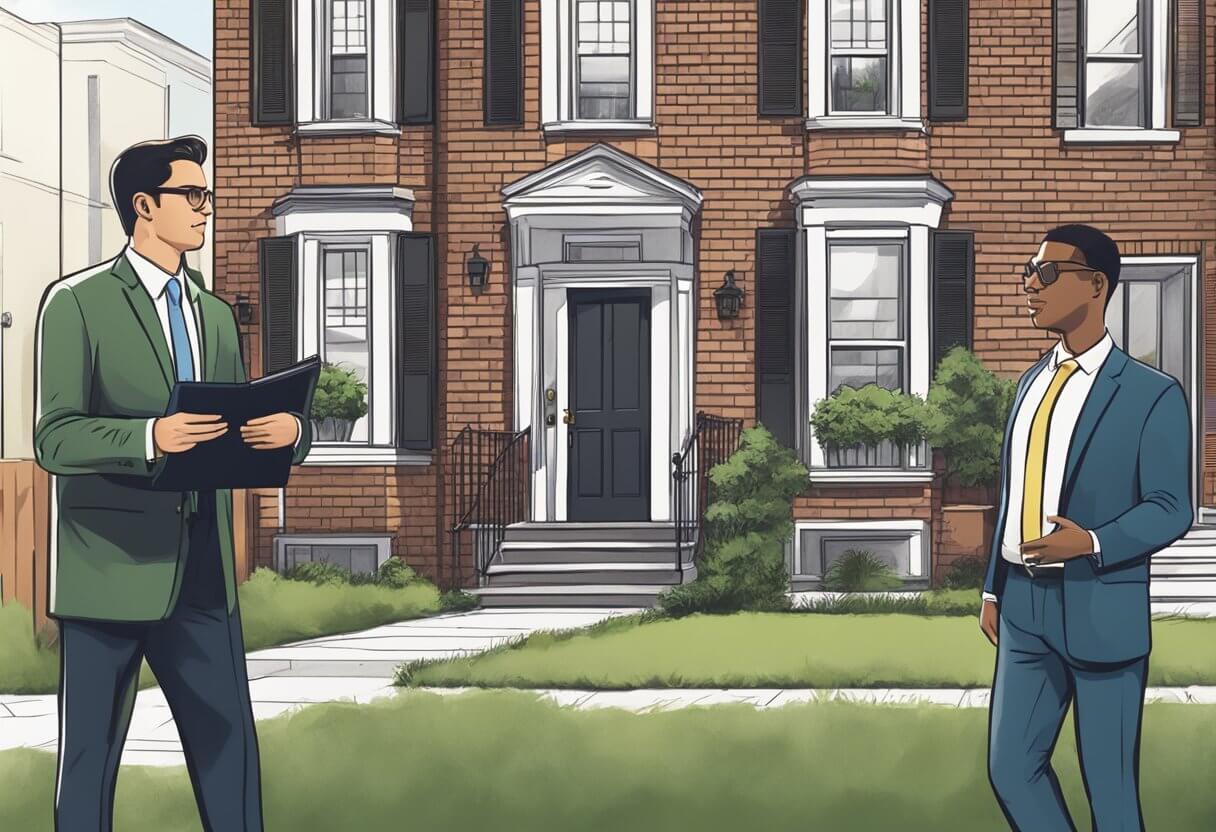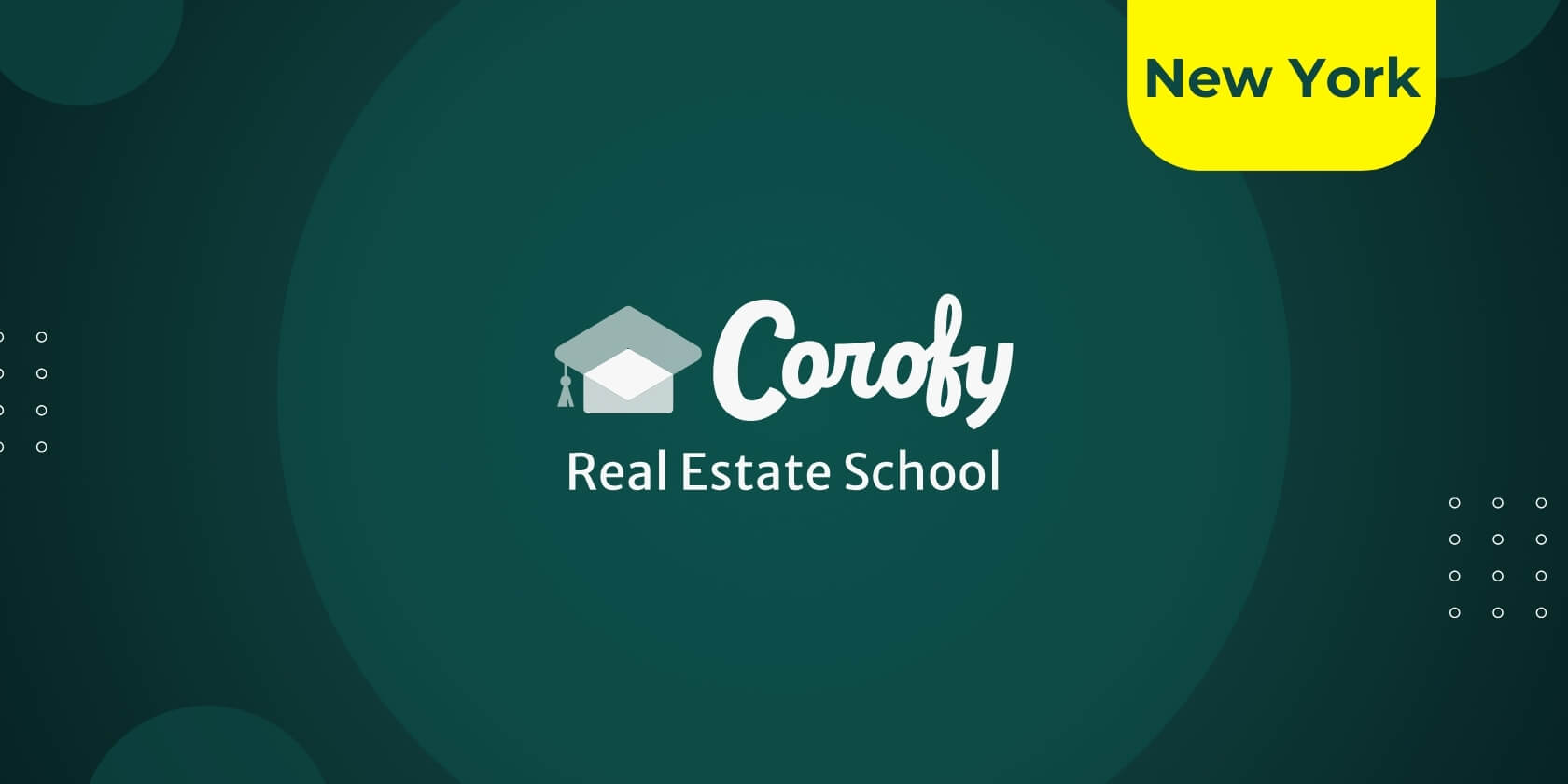Navigating the world of real estate in New York can be a complex affair, particularly when it comes to understanding what role an unlicensed individual can play in this tightly regulated industry. The state maintains strict regulations and laws regarding the sale and management of property, highlighting the importance of holding a valid real estate license. If you’re considering a career in real estate in New York or simply aiming to participate in property transactions, it’s crucial to be aware of the limitations imposed on unlicensed practitioners.

Despite these constraints, there are certain activities that unlicensed real estate professionals are permitted to engage in, provided they work under the supervision of licensed brokers, agents, or property managers. It’s important to note that an unlicensed individual cannot independently list properties, negotiate sales, or manage leasing agreements. The role of unlicensed individuals is often supportive, and they are barred from any actions that could be construed as practicing real estate without a license.
Key Takeaways
- New York real estate laws necessitate a valid license for engaging in sales, leasing, or property management.
- Unlicensed individuals in the New York real estate sector must operate under licensed supervision.
- Engaging in real estate activities without a license is prohibited and restricted to certain supportive roles.
Do We Need A License to Sell Real Estate in NY?

In New York State, a real estate license is mandatory if you’re looking to engage in the sale of real estate as part of a business. When your role involves representing sellers or buyers in a real estate transaction, whether that’s the purchase, leasing, or selling of property, a valid license is non-negotiable. As a licensed real estate salesperson, you operate under the supervision of a licensed broker.
- Without a license, you cannot negotiate contracts or terms of sale.
- You’re also prohibited from taking part in commission-based activity related to selling real estate.
Unlicensed individuals can still work in a real estate office as an assistant or employee, but their activities are limited to non-licensed tasks such as:
- Administrative support
- Scheduling appointments for the agent or broker
- Assisting with paperwork that doesn’t require a license to handle
The assistant’s involvement must always be under the broker’s guidance. Any direct engagement with clients, discussion of terms, or involvement in the negotiation parts of a transaction must be conducted by a properly licensed individual.
To become a licensed salesperson, training through an approved course is necessary, followed by passing the state’s licensing exam. Working as a property manager may require separate credentials, depending on the scope of involved tasks. Due diligence in following regulations ensures that all real estate transactions are executed ethically and legally.
Unlicensed Professionals Are Dependent on Licensed Brokers, Agents and Property Managers for Jobs
In New York, your role as an unlicensed real estate assistant is closely tied to the oversight and direction of licensed professionals, such as real estate agents, brokers, and property managers. Without a real estate license, you’re unable to engage independently in most activities associated with buying, selling, or managing property.
Here’s what you should know about working in conjunction with licensed personnel:
- Alignment with Licensed Brokers: You can perform tasks that support a licensed broker, but you can’t lead transactions or negotiations.
- Support to Real Estate Agents: As an unlicensed assistant, you can assist real estate agents with administrative tasks, but you must avoid tasks reserved for those with a license.
- Property Management Limitations: Working under a property manager, you may help in the background, but you can’t carry out roles that legally require licensing, such as signing leases.
Your activities are generally administrative or clerical, including but not limited to:
- Scheduling appointments
- Managing files
- Assisting with the preparation of documents
In essence, your position as an unlicensed individual in New York’s real estate sector does not permit independent real estate services. To expand your scope of work, pursuing a real estate license through an accredited platform, such as a fully online real estate school, would be the next step. With a license, you could then take on more significant responsibilities and control your own career in real estate.
No Path to Promotion
In the competitive New York real estate market, career progression often hinges on obtaining the proper credentials. If you’re working as an unlicensed real estate agent, you may find that your opportunities for promotion are significantly limited.
- Licensed Brokers: They are at the top of the real estate hierarchy. Possessing a broker’s license opens doors to starting their own firm or taking on higher-level managerial roles.
- Salesperson License: This is the stepping stone to becoming a broker. Holding a real estate salesperson license allows for engagement in more complex transactions and a path up the career ladder.
Without these licenses, your role does not typically provide a direct route to a promotion within a real estate agency. Your tasks are generally more administrative in nature and don’t involve activities that require a license, such as negotiating or signing contracts.
Here are clear distinctions in roles:
- Unlicensed: Your activities are supportive. You’re not able to independently list, sell, or broker real estate.
- Licensed: You have a clear progression path, potentially moving to an employing broker position or even opening your own brokerage.
To advance your career in New York’s real estate sector, consider enrolling in a fully online real estate school. As a licensed professional, you will have the ability to seek promotions and increased responsibilities. Without a license, however, you remain an invaluable yet stationary component of the agency’s support system.
Importance of Licensing in Real Estate
Licensing in the real estate industry serves as a critical checkpoint to ensure that agents operating in the market are qualified and adhere to a set of standards. In New York, obtaining a real estate license requires passing through rigorous steps, including completing educational courses and succeeding on the licensing exam. These measures are in place to demonstrate and assure competency.
The real estate market is heavily regulated, and these regulations are part of the broader real property law framework which seeks to protect the public interest. Here’s a brief overview of why the license is so important:
- Ensures Professional Standards: Before you can engage with clients, you must prove your knowledge and understanding of the market, legalities, and ethical obligations.
- Legal Compliance: Only with a license can you legally facilitate real estate transactions. Without it, any activity may be considered unlicensed and could lead to legal repercussions.
- Consumer Confidence: Clients are more likely to trust an agent who has a licensed broker backing them.
- Access to MLS: A licensed agent can access and contribute to the Multiple Listing Service (MLS), a crucial tool for staying current with real estate offerings.
Licensure is the foundation that the real estate profession is built upon in New York, ensuring that transactions are carried out by knowledgeable and responsible professionals. Remember, Corofy offers a fully online platform to make it easy for you to take coursework that will prepare you for the New York real estate exam—a firm step towards your goal of becoming a licensed agent.
Benefits of Hiring a Licensed Real Estate in New York
When you engage a licensed real estate agent in New York, you are enlisting a professional licensed broker bound by a strong ethical code. Such agents have completed rigorous training and understand the complexities of the real estate market. They bring a wealth of knowledge in various aspects like sales, lease agreements, and rent collection that can be pivotal for your real estate decisions.
Here are some key advantages of hiring a licensed agent:
- Expert Negotiations: Your agent can handle negotiations skillfully, potentially saving you money and avoiding pitfalls in the buying or selling process.
- In-depth Market Knowledge: With comprehensive understanding, they can price your property correctly and identify real properties that suit your needs and budget.
- Efficient Marketing and Advertising: Agents have access to professional marketing tools and networks to effectively advertise your property.
- Legal Protections: They are highly familiar with all necessary legal documentation, contracts, state regulations, and can ensure a seamless and legally sound transaction.
- Commission-based Motivation: Since their commission depends on successfully closing a deal, they are motivated to achieve the best possible outcome for you, their client.
Hiring a licensed real estate agent is beneficial not just for peace of mind but also for the potentially better financial deals that their expertise can bring to the table in a complex New York real estate market.
Conclusion
In New York, navigating the real estate landscape requires awareness of the stringent regulations that govern the industry. Without proper licensure, your scope of activities as a real estate professional is limited. For those aspiring to engage in property management or facilitate real estate transactions, obtaining the necessary credentials is paramount.
To operate legally, real estate salespersons and estate brokers must comply with state laws. While licensed individuals can lawfully execute sales, negotiate leases, and manage properties, unlicensed persons are significantly restricted. Your professional conduct and the legitimacy of your role in the real estate market hinge on adherence to legal standards.
Be mindful that professionalism in real estate is not just about possessing a license; it’s about ensuring a successful real estate transaction occurs under the guidance of knowledgeable and ethical practice. To embark on a career in New York’s real estate domain, consider enrolling in a comprehensive program like Corofy, which can prepare you for the licensure process entirely online.
Remember, while your enthusiasm for real estate is commendable, navigating without a license limits your ability to act independently in the market. Take the right steps towards licensing to establish your professionalism and maximize your potential within this dynamic industry.
Frequently Asked Questions
Navigating the specifics of real estate regulations in New York can be complex. These FAQs aim to clarify what you, as an unlicensed individual, can and cannot do in the context of real estate activities in the state.
Are there any permissible activities for unlicensed real estate assistants in New York?
Yes, there are permissible activities for unlicensed real estate assistants in New York, such as administrative tasks that don’t require a license. This includes setting appointments, filing documents, and managing the office.
What responsibilities can an unlicensed real estate assistant legally take on?
An unlicensed real estate assistant can legally handle responsibilities like answering phones, submitting listings for the brokerage, and helping with marketing materials. However, they must avoid activities that involve negotiation or advising on property.
What actions are considered illegal for unlicensed real estate personnel in New York?
It is illegal for unlicensed personnel to engage in negotiating sales, leases, or the exchange of real property. They cannot show properties, discuss terms or conditions of a transaction, or represent themselves as licensed agents.
Can an unlicensed person engage in property management activities in New York without a real estate license?
Unlicensed individuals are restricted from certain property management activities. They cannot negotiate leases or rentals, but they may be able to perform other functions like coordinating repairs and maintenance as long as they do not engage in leasing activities.
What penalties might an unlicensed individual face for conducting real estate activities in New York?
Conducting real estate activities without a license in New York can lead to serious penalties, including fines and potential legal action. The state strictly enforces these regulations to protect consumers.
In what circumstances is a New York real estate license mandatory for participating in real estate transactions?
A New York real estate license is mandatory for any individual participating in the negotiation of real estate transactions, including sales, exchanges, rentals, and leasing, as well as collection of rent and attempting to collect rent for other properties.



